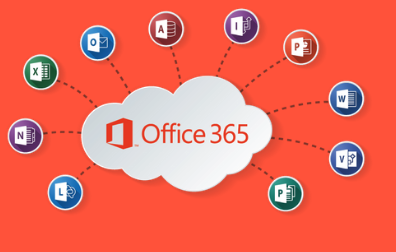When a SharePoint Cloud is all puffery
As you may have noticed by the slew of announcements from Redmond, Microsoft has placed increasing emphasis on "cloud" computing. Their recent world-wide partner conference focused almost exclusively on how partners could benefit from cloud initiatives. While cloud computing, generally, is nothing new, Microsoft's push to make more available through the cloud is interesting (see Azure, facebook-integrated Docs and their BPOS offering). However, in the rush to capitalize on a new-found opportunities, some Microsoft partners seem to be stretching the bounds of the language used to describe their cloud offerings, thereby causing buyer confusion.
Cloud computing, by definition, is "Internet-based computing, whereby shared resources, software, and information are provided to computers and other devices on demand, like the electricity grid." (source: Wikipedia on Cloud Computing). The definition goes on the say that "[c]loud computing is a paradigm shift following the shift from mainframe to client-server in the early 1980s. Details are abstracted from the users, who no longer have need for expertise in, or control over, the technology infrastructure 'in the cloud' that supports them." Wikipedia also mentions that cloud resources are often "dynamically provisioned."
However, a recent experience with a major Microsoft hosting partner lead me to the conclusion that some vendors may be giving themselves more definitional "flexibility." For example, this particular vendor was trying to sell my client a hosted SharePoint environment in a "private cloud." Actually, what they were really selling to the client wasn't cloud-like at all. They quoted a single physical server, hosted in their data center, running VMWare's ESX Server. The server was to host three virtual instances of Windows Server 2008, each running a portion of a SharePoint farm (though with barely enough physical memory to run the farm effectively). The details of the implementation and, indeed, portions of the management, were still in the hands of the client, even though the vendor supplied the data center, leased the hardware, and setup the machines. I’m not sure about you, but this strikes me no different than what this same vendor called "managed hosting" just last year or even five years ago.
While there's still some debate about whether a private cloud is actually a cloud at all, there are several key cloud ingredients this vendor’s solution lacked, namely:
- Elasticity: growing or shrinking based on demand
- On-demand: available when you need it
- Dynamic provisioning: the bit that enables elasticity
(In fact, both Microsoft and Amazon offer private cloud solutions -- Amazon's virtual private cloud and Microsoft's Azure private cloud or SharePoint Online for SharePoint -- that should represent the benchmark for comparison.)
Our SharePoint research points out examples where Microsoft overloads terms or provides less-that-crystal clear definitions, sometimes with partners following suit. This partner's approach to selling a solution certainly pushed some boundaries. While most vendors don't purposely mislead, they are always looking for the edge over their competition. It requires extra due diligence on the part of you the customer to understand what you're truly being sold.




